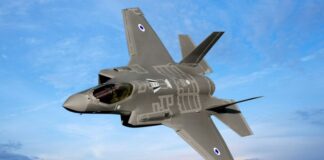As many as 15,000 people joined a trade union organised rally in Port Moresby, the capital of PNG, in mid-April to protest against Parliament’s vote to defer elections by six months. Most of Moresby, with a population of only 250,000, was shut down for the day.The newly-appointed PM Peter O’Neill and his deputy Belden Namah felt compelled to address the rally and both were roundly booed with chants of “rausim”, which is pidgin English for “out”.
PNG’s election is due on June 23 and follows months of political infighting between former PM Michael Somare and the new PM Peter O’Neill, installed by Parliament but not by popular vote.
Michel Malabag, President of the Trade Union Congress (TUC) said, “All politicians, we elected them for a fixed, mandated term of five years and not a day later.”
O’Neill was initially a popular replacement for the 78 year old Somare when he took over in December, promising free education and more government spending on the poor.Many in PNG live in extreme poverty, with about one third of the population living on less than $1.25 a day.
The current events are a continuation of the power struggle inside the PNG ruling elite from December. The entire PNG government system is in turmoil. Somare and O’Neill have fought each other through parliamentary confidence motions, High Court rulings, lobbied the Governor-General and even got the Electoral Commissioner involved.
But now the mass of workers and students have been drawn in, as they fight to defend democratic elections.

The protests began among university students in late March at the University of PNG. They planned to occupy the government district of Port Moresby, called Waigani.Occupy Waigani was inspired by the worldwide Occupy movement as PNG students took up the issue of inequality in PNG.
A law introduced by O’Neill to silence judges was the spark. But there is wider anger over the exploitation of local resources—minerals, oil and timber—by corporate interests and systemic government corruption.
Within days around 2500 students defied a police order not to protest in Waigani. After this, a Community Coalition Against Corruption was formed by students and unionists in the PNG TUC, as well as NGOs.
Australia’s role
In December, the Gillard government watched the political turmoil in PNG with concern. The National Security Committee of Cabinet drew up the usual imperial plans to intervene with Australian troops, if the crisis developed into open warfare between the factions.
PNG, with a population of almost six million is a former Australian colony, and it remains important to the Australian ruling class for two reasons.
Firstly, it is strategically located as an island barrier to Australia’s immediate and relatively under-populated north. Secondly, it is a source of wealth for Australian companies, who have invested millions of dollars there. At one point in the mid-1990s, one third of all Australian gold came from mines in PNG.
Today Australian companies there include BHP Billiton, mining copper and gold at OK Tedi, Newcrest mining gold at Lihir and Rio Tinto which wants to re-open Bougainville’s copper mine. Smaller companies like Morobe Mines dig up gold and silver. All of them want a reliable PNG state, so that they can continue to plunder PNG’s mineral wealth.
Control of the government in PNG is one of the few paths to controlling wealth. This is the root of the power struggle between Somare and O’Neill. The private sector, both locally-owned and expatriate, remains very small.
PNG’s model of growth, bequeathed to it during Australian rule, is based on mining and mineral exploration. Investments in the billions are at stake, like Exxon-Mobil’s $15.7 billion LNG project, due to start production in 2014. Mining provides 60 per cent of PNG’s earnings.
PNG’s industrial development was held back because of policies imposed during colonial rule by Australia, which only ended in 1975. Successive Australian governments restricted industrial development almost exclusively to mining projects.
Mining employs just 1 per cent of the workforce, with most managers and supervisors being expatriate Australians. Successive PNG governments have been unable to create a diversified economy capable of providing jobs for its growing urban population.
O’Neill has agreed to the election being called on June 23 but refused to back down on the law against judges, unless the two judges he finds most troublesome, including the Chief Justice, resign.
What is certain is that the turmoil has begun to draw in and politicise the people of PNG, which has the potential to make this struggle about more than simply dividing the spoils of corruption among the elite.
Australia’s rulers will be worried.
Tom Orsag





